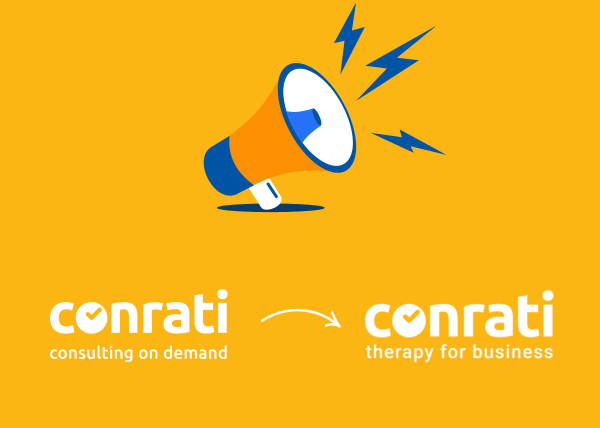It’s true, let’s face it. Everybody wants to be their best, and live their best lives.
However, it also requires work on our part. The effort we put into improving our lives includes striving to reach all of our goals, including our wellbeing.
We’ll look at some of the different types of health and how to improve them.
Optimal health is defined as a state of complete emotional and physical well-being, and the goal of healthcare is to keep people in that state.
Let’s bring awareness to several types of health, including:
- Physical health
- Mental health
- Emotional health
- Social health
- Environmental wellness
- Spiritual health
- Financial health
- Career health
Physical health

An individual’s physical health refers to everything about their body, from illness to fitness.
It is crucial for overall well-being to maintain good physical health, which can be affected by:
- A person’s lifestyle includes what they eat, how they exercise, and what they do (for example, whether they smoke);
- A person’s genetics and physiology may make good physical health easier or more difficult;
- A person’s surroundings and their exposure to factors like sunlight and toxic agents;
- Having access to good healthcare can prevent illness, lead to the early detection of illness, and improve the treatment of illness.
What can you do to improve your physical health?
- Get active. Start improving your physical health through daily exercise.
- Maintain a well-balanced nutritious diet. Your body needs nutrients and energy to perform optimally.
- Maintain a healthy weight to lower your risk of heart disease, diabetes and certain cancers that are associated with being overweight or obesity.
- Give up bad habits such as smoking or excessive drinking.
- Take note of your metabolism. As we age, our metabolism also changes. become aware of how your body is changing.
Mental health
According to the WHO, an estimated 264 million people are affected by depression on a global scale followed by 45 million affected by bipolar disorder, 20 million affected by schizophrenia, 50 million affected by dementia, followed by developmental disorders such as autism.
The state of a person’s mental health ties into their emotional, psychological, social and even physical wellbeing. How we feel, think, and act can impact our mental health. It helps us build relationships with others, deal with our life’s stresses, and makes it easy to make healthy choices. Let’s take a look at the types of mental health awareness around the world and what we can do to support ourselves and our loved ones.
Getting help is a sign of strength, not weakness. It is important not to forget that treatment works. People who seek help are showing strength, not weakness. It is important to remember that treatment works. Those who receive appropriate care can recover from mental illness and addiction and lead full, rewarding lives.
Here are a some of the practices to support you on your journey:
- Value your wellbeing
- Practice meditation
- Take care of your body
- Eat healthy
- Surround yourself with good people
- Contribute some of your time to your community
- Set realistic goals
Seek help from a professional if and when you need it.

Emotional health

Emotional health includes your ability to cope with both positive and negative emotions.
People who are emotionally healthy have control over their thoughts, feelings, and behaviours. These individuals can face life’s challenges. It is possible for them to keep things in perspective and bounce back from difficulties. They have good coping mechanisms for negative emotions, as well as the ability to seek professional help when they need it.
How can you improve your emotional health?
- Connect with others. This can help you build a sense of belonging and self worth.
- Be physically active. Exercising regularly can improve your mood and increase your self-esteem.
- Learn new skills. This can help you build a sense of purpose. It can be as simple as learning to cook something new.
- Give to others. The act of giving can be rewarding in many ways. It helps you become more empathetic towards others and give you a sense of purpose, self-worth and positive feelings as a sense of reward.
- Practice mindfulness. Focusing on the present moment can help you understand your thoughts, feelings, your body and the world around you.
- Start a mood journal. Spending just a few minutes a day to write down your feelings and allow yourself a safe space to express yourself can help improve your mental and emotional wellbeing.
Social health

Social health can be defined as our ability to interact and form meaningful relationships with others. It also relates to how comfortably we can adapt in social situations. Social relationships have an impact on our mental health, physical health and mortality risk.
How can you improve your social health?
- Build healthy relationships by keeping in contact with your friends and family regularly
- Bond with your kids
- Get active together such as joining an exercise class or exercise with a friend
- Make connections with those who have similar interests as you
- Take care of yourself while caring for others
Environmental wellness

Our environment can impact our mental and physical health. Although we may not always be able to change our environment, we can take small steps towards making it safer and limiting our exposure to potentially harmful substances. This can positively contribute to your overall health.
Here are a few ways you can improve your environmental wellbeing:
- Opt to use natural alternatives to replace harmful cleaning products
- Declutter your home
- Improve the air quality by opening windows daily to allow air circulation
- Spend more time in nature
- Increase the amount of eco-friendly and recycled materials in your home
Spiritual health

A purposeful life includes transcendence, actualization of various dimensions and capacities, as well as being in harmony with the universe. In achieving spiritual health, human beings balance physical, psychological, and social aspects of their lives
How can you improve your spiritual health?
- Explore your spiritual core by reflecting on questions about the type of person you are, your morals and values
- Connect with your faith community
- Volunteer and help others
- Spend time in nature
- Look for deeper meanings
- Think positively
- Practice meditation
Financial health

Financial health is a term used to describe the state of one’s personal monetary affairs. There are many dimensions to financial health, including the amount of savings you have, how much you’re putting away for retirement, and how much of your income you are spending on fixed or non-discretionary expenses.
Here are some simple tips to improve your financial health:
- Keep track of your finances. Access your earnings, expenses and determine how much money goes towards paying off debt and where you can free up cash flow. Ask yourself what financial goals do you want to have.
- Decrease your debt. If you spend most of your money towards paying off debt, it could become difficult to meet your financial goals. Consider a trusted debt management solution in your country.
- Create a budget and make sure you stick to it. This helps you prioritise what’s most important and helps you work towards your financial goals. You can easily search for a professional on www.conrati.com to help you.
- Plan ahead. To help you get through unplanned expenses, start building up an emergency fund to help you when you need it. This can also include planning for your retirement.
- Protect your wealth. Research the right cover to protect your assets, this includes insurance to protect your family from any financial impact is anything unexpected happens to you.
- Draw up your last Will and Testament. This will ensure that if anything were to happen to you, your assets and personal possessions are divided up among those individuals you want to inherit them. Without a valid document stating your wishes, your estate may end up in the hands of your state’s laws. Once your Will is drawn up, store it in a safe place and let a trusted person know where to find it for when the time comes.
Career health

One thing we’ve learnt throughout history and time, is that change is a inevitable. In order to move forward in life, the changes that we go through may not be what we planned for or expected. This includes the trajectory of your career.
Here are a few tips to improving your career health:
- Know your goals. Have a clear understanding of where you want to be in your career. Ask yourself what type of career success do you want to have? If you are unsure, seek help from a professional to help guide you.
- Keep learning. No matter your age or career path, constant learning contributes to career success. Access to information is readily available in todays time, including free online education.
- Stay connected to your network. Keeping in touch with your professional network opens up the opportunity for you to stay ahead of trends and changes in your industry.
- Know which direction your industry is moving. If there are major changes happening within your industry, you don’t want to be left behind. Do your research and work on those improvements so that you are constantly moving towards your goals and maintain your career health.
Weather you choose to focus on one form of health or more than one, the outcomes of just changing a few habits can have a lasting impact on your overall health.
If you struggle to put these practices in place or need more advice, visit Conrati to find thousands of professional online Advice Providers to help you get started or stay motivated.









7 Replies to How to boost 8 different forms of health
thanks for info
Why your child should have a tutor
Conrati nominated as a Top Environmental Consulting Company by Futurology
Mentorship for the Mentee
Psychology and its facets
How to boost 8 different forms of health
Conrati nominated as a Top Environmental Consulting Company by Futurology
How social media affects mental health
Understanding Bipolar Disorder